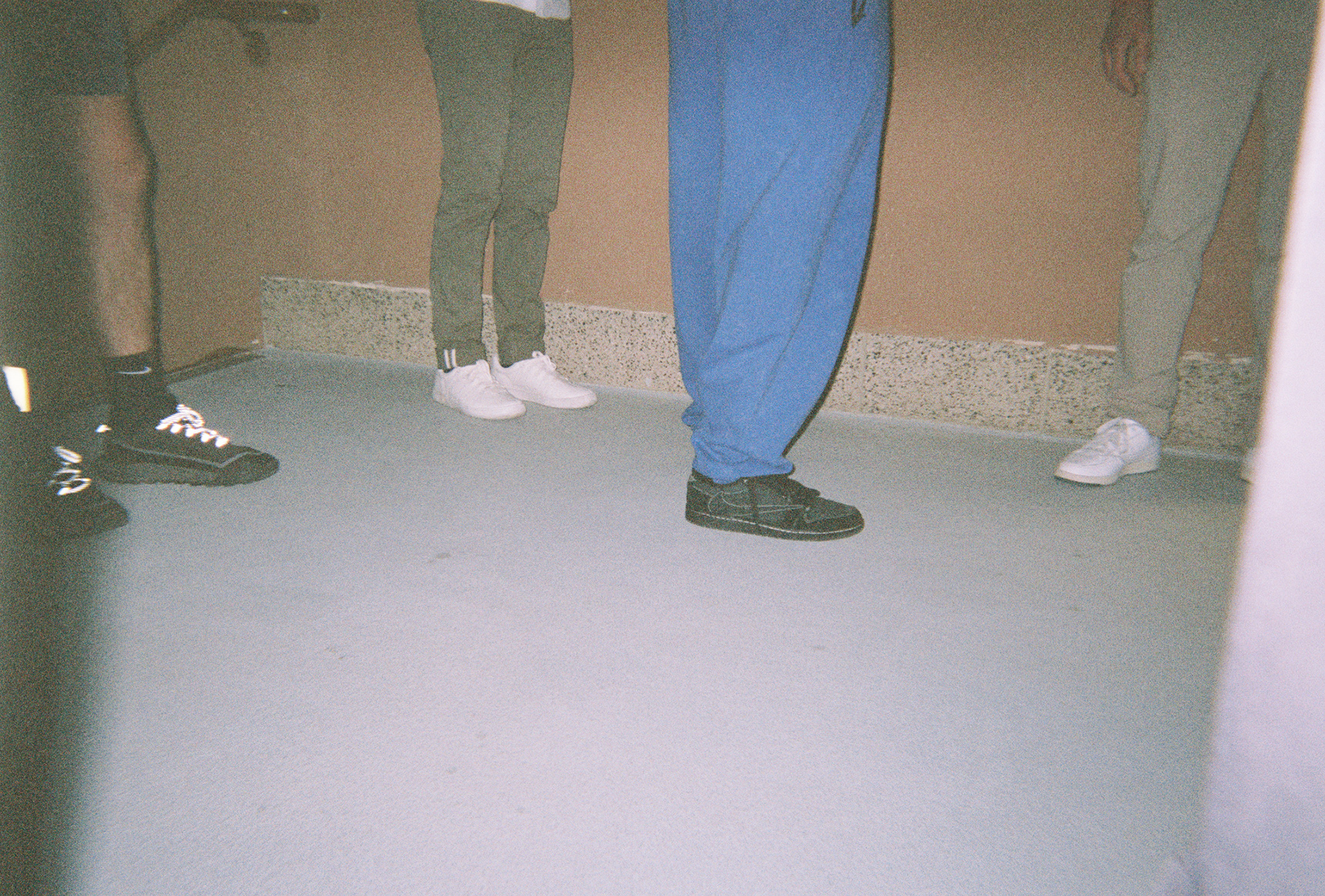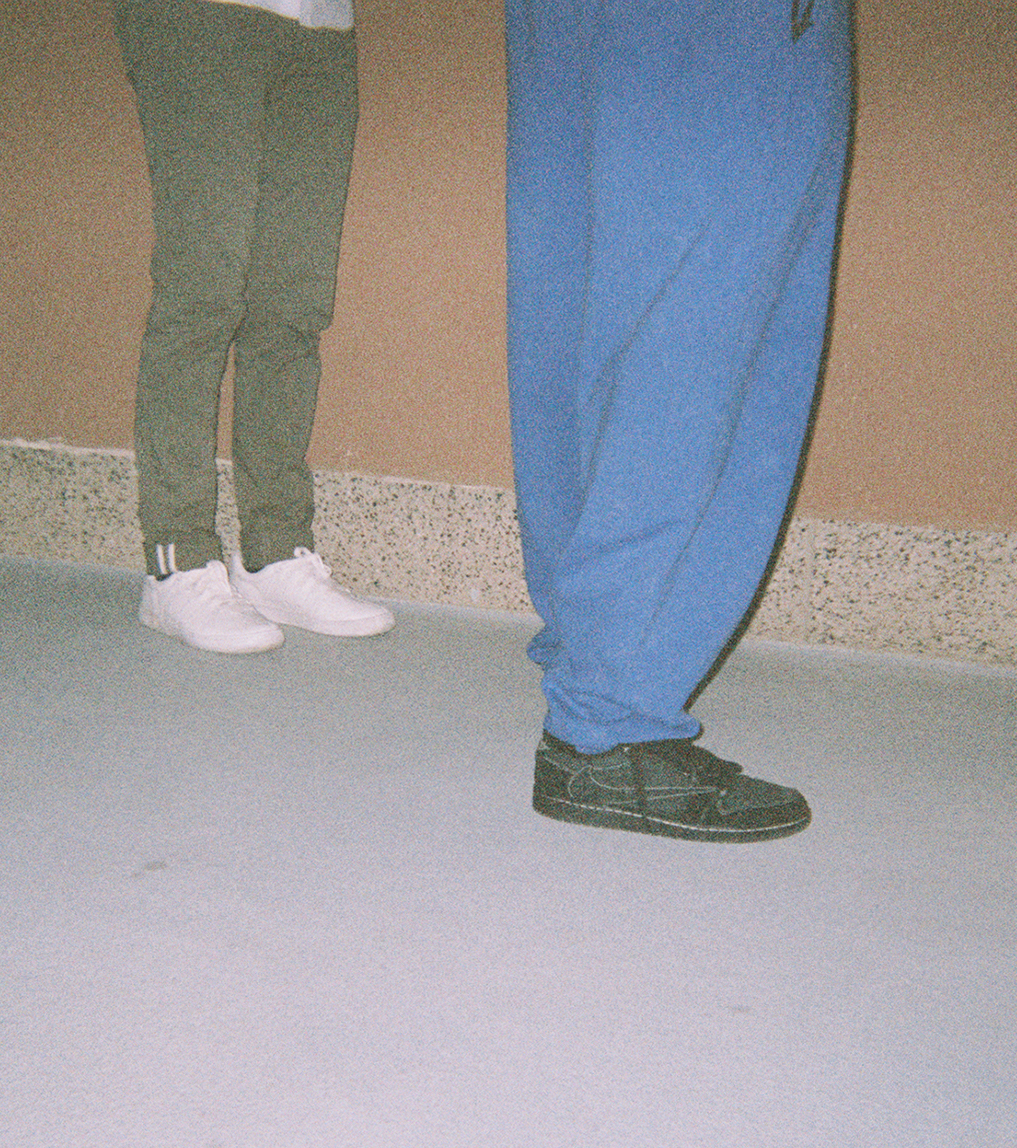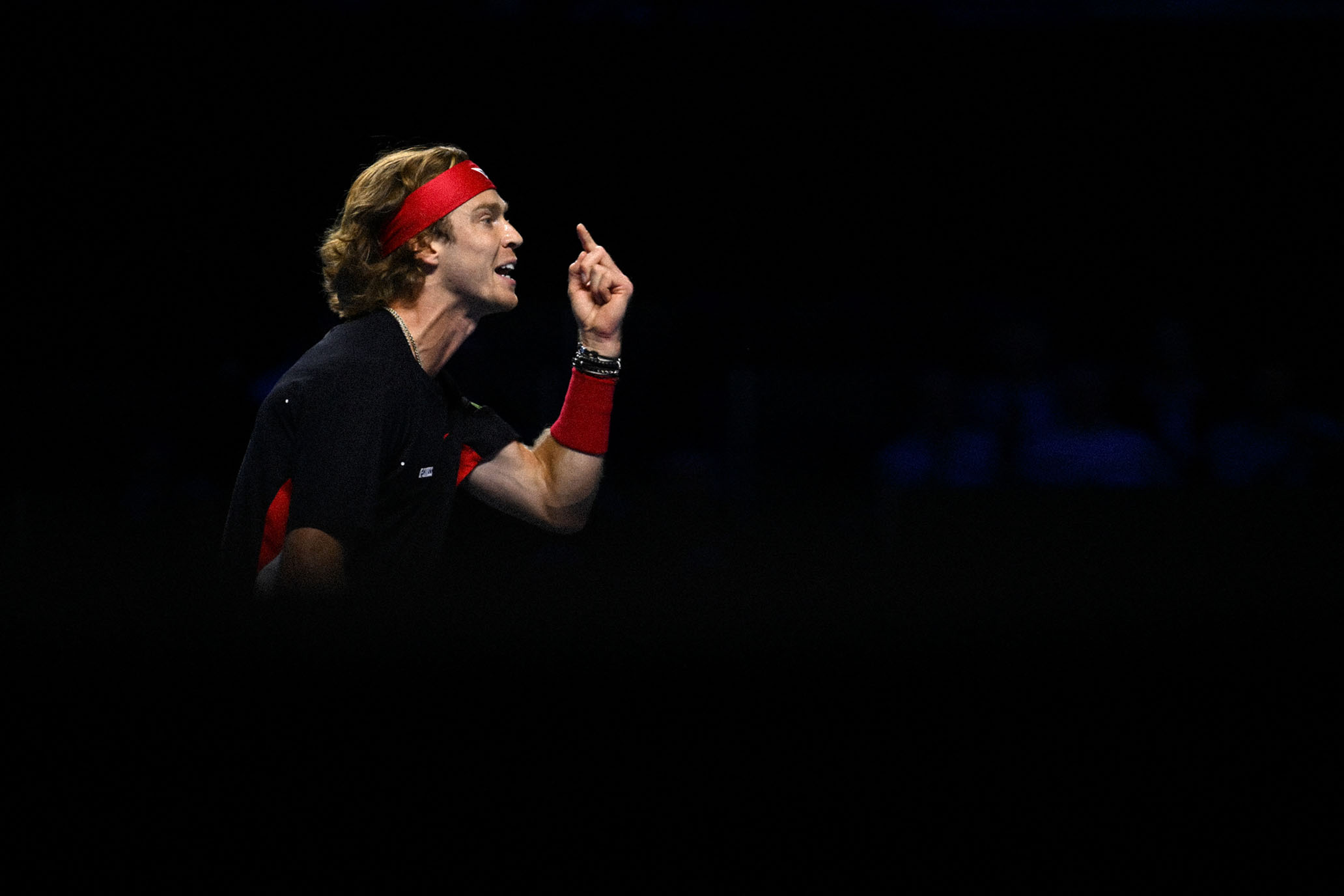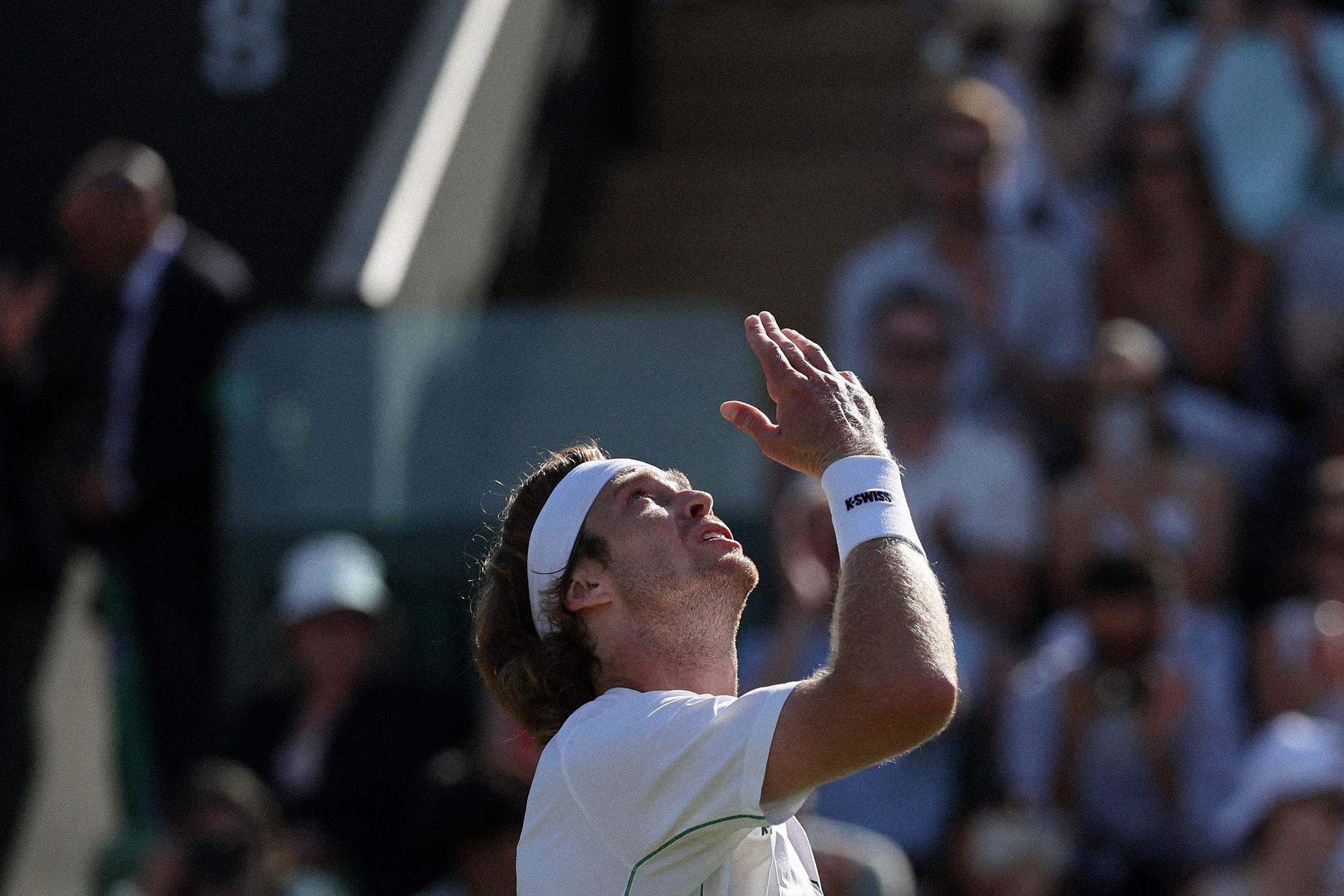A Matter of Respect
A Matter of Respect
Ons Jabeur is frustrated.
Ons Jabeur is frustrated.
By Ben RothenbergMay 3, 2024

“Sometimes I don’t think that it’s just a question of money, but also respect.” — Ons Jabeur in Madrid this week. // AP

“Sometimes I don’t think that it’s just a question of money, but also respect.” — Ons Jabeur in Madrid this week. // AP
It’s a frustrating time in women’s tennis for nearly everyone involved, it seems.
Ons Jabeur was frustrated this week, you may have heard. With only three wins in the 10 matches she’d played heading into Madrid, the three-time major runner-up was ranked 76th in the WTA’s year-to-date race. But though she could be philosophical about losses in Madrid, where she doubled her win count for the year by winning three matches to reach the quarterfinals, Jabeur’s frustrations remained on behalf of her entire tour.
Asked after an impressive fourth-round win over Jelena Ostapenko about her thoughts on the history of women’s tennis as a leader among women’s sports, Jabeur made it clear that she is deeply dissatisfied with the present. “I feel like we have a long way [to go], especially here in Madrid and in Rome—in Europe in general,” Jabeur said. “I feel like they need to respect women more, and they need to respect how we are playing.”
Jabeur elaborated that “the way they treat women here” included uneven assignments in practice courts—she heard of four top-20 women being made to share a single court while male players got hours-long blocks to themselves, and just the general “energy” of the organizers. Coverage of the tournament on Spanish television, she added, skewed entirely toward the men.
“Sometimes I don’t really think that it’s just a question of money, but also respect,” she said.
Complaints about the gender landscape in Madrid are nothing new. Last year, eyebrows raised when Aryna Sabalenka’s birthday cake looked puny next to the multitiered megalith given to birthday boy Carlos Alcaraz. “Couldn’t be more accurate on the treatment,” WTA player council mainstay Victoria Azarenka commented on a side-by-side confection comparison.
Apparently fearing that Azarenka might continue to be more mouthy than they wanted, tournament organizers made the shocking decision to not allow any of the four women’s doubles finalists to make any remarks during the trophy ceremony. Apologies came days later, but bad feelings remained and fermented over the past year.
After letting a few birthday candles turn into a small inferno a year before, Madrid organizers remained typically oblivious this year after Jabeur’s comments. Feliciano Lopez, the latest in the worldwide trend of picking tournament directors for major events based on the apparent sole qualification of who is handsomest among ATP players near retirement age, said he thought everything was hunky-dory. “Last year…with the doubles finals, we apologized and we moved on and everyone’s happy,” Lopez dubiously claimed in an interview with Sky Sports this week.
He said Jabeur’s more recent suggestion that there was unequal respect was impossible, given the equal numbers on the paychecks. “I have to say that we were the same tournament to pay the same prize money to women and men,” Lopez said. “And so I don’t think it’s fair that someone might think that we are not treating men and women equally.”

"Different cakes for different folks." Twitter // AP

"Different cakes for different folks." Twitter // AP
Lopez is right, Madrid is a rare equal prize money event on the WTA Tour, one of only three events alongside Indian Wells and Miami. But tournament founder Ion Tiriac repeatedly sued the WTA in hopes of breaking his obligation to give equal pay at the tournament, which significantly undermines the numbers. To be at the Caja Magica briefly is to realize how hollow that signal is when it’s drowned out by the undeniable noise of misogyny and machismo on site. At The House That Ion Tiriac Built, women are regularly given the worst slots on the biggest courts, largely contributing to attendance skewing heavily toward men’s matches in the stands. “So many times people would judge women’s tennis without even watching one match,” Jabeur had said during her complaints. “That pisses me off a lot.”
The disconnect between money and message has been foregrounded in women’s sports recently, most notably when Caitlin Clark’s superstar status clashed with the information that circulated shortly after she was the first overall draft pick that she would only be paid about $75,000 in salary for her rookie season in the WNBA, less than a WTA player would make for a first-round loss at the US Open. This is no small thing, both for the viability and security of top women’s tennis players: As Brittney Griner goes on a media tour for her new book about her time in captivity, we are reminded that she only had to go to Russia because her WNBA salary was so paltry.
With that perspective, even when things are bad in women’s tennis, they’re still pretty good. Last year’s slapdash WTA Finals in Cancun were bashed by many top players for the volatile tropical weather and substandard facilities. But when Iga Swiatek won the title, she walked away with a meaty $3,078,000 in prize money (about 41 Caitlin Clark salaries, to do the math). These bountiful hauls are something that both players and fans of women’s tennis probably take for granted more often than they should; this still just isn’t the norm for a women’s sport.
In fact, it seems reasonable to suggest that WTA players are getting paid too much. The WTA’s finances pale in comparison with the ATP’s in recent years, and that gap is widening.
It’s pretty easy to see a reason why: The ATP is consistently reinvesting in promoting its product, with a constant stream of social media and video content through both itself and its partner TennisTV, which is a high-functioning streaming service. The WTA lacks any sort of partner or high-functioning streaming service; instead, they’re using a disproportionately huge percentage of their budget to pay top players very high amounts. Investing in those assets will help increase revenues and stabilize the business far more than any prize-money check.
Those investments should help authentically stabilize the business of the tour and leave them in a position of strength, which brings us to the next source of women’s tennis frustration: the tour’s three-year deal to host its showcase WTA Finals in Riyadh, Saudi Arabia. Myriad men’s sporting organizations and individual athletes (including the ATP Tour and Rafael Nadal) have already cashed in big checks from the Saudis, so it’s tough to begrudge the business of women’s tennis that same opportunity. But women’s tennis, like most every women’s sport, has also positioned itself as a cause, and a place for equality and inclusivity, values that are particularly tough to jive with Saudi Arabia’s positions on women’s equality movements and LGBT people.
Much has been made of Daria Kasatkina’s possible inclusion in the field in Riyadh, should she qualify; this week, she told the BBC she had been “given guarantees that I’m going to be fine.” But exceptions for Kasatkina, who travels the tour vlogging with her girlfriend Natalia Zabiiako, do little to fix the almost certainly inhospitable circumstances for broad swaths of people who might attend an event like the WTA Finals in nonplayer roles. Whether it’s officials, staff, media, or fans, it’s hard to imagine an LGBT person feeling welcome in Riyadh. The WTA was founded and sustained by LGBT people, and selling them out was a serious decision; hopefully the price was sufficiently high.
Another recent major frustration came from within the players itself, when WTA No. 2 Aryna Sabalenka said before the tournament that “I prefer to watch men’s tennis rather than women’s tennis. I feel like there is more strategy and it’s more interesting to watch [laughs]” Sabalenka tried to walk back the comments in her next press conference, saying she can enjoy a match more when not thinking about the players on screen as future opponents, but it was still a staggering own goal from a person who should be one of the sport’s most reliable ambassadors.
But between the frustrations, there’s undeniable beauty. Sabalenka, days after her boneheadedness, delivered one of the matches of the year in the Madrid semifinals, coming back to beat Elena Rybakina in a three-set thriller and setting up a rare 1-vs.-2 battle in the final against Iga Swiatek. It’s hard to stay mad at this sport for long.





The Hopper
—Still on the fence about seeing “Who Is Stan Smith?” Learn more about it here.
—Speaking of Stan Smith, don’t miss his touchbase with The Fifth Grand Slam, on the Craig Shapiro Tennis Podcast.
—Tennis Australia is not into a Saudi Masters 1000.
—Andrea Petkovic was ready to hate “Challengers”—but didn’t!
—However Zendaya concedes it’s a “mess”, albeit a “beautiful” one.
—Still haven’t had enough of “Challengers”? Here’s Defector on the film’s soundtrack.
—Danielle Collins has partnered with FP Movement.
—There’s still time to sign up for LVBL NYC x USTA Eastern.
—And to attend a table tennis tournament and Madrid Masters finals party at Spin NYC hosted by LVBL and the Manhattan Tennis Association.



